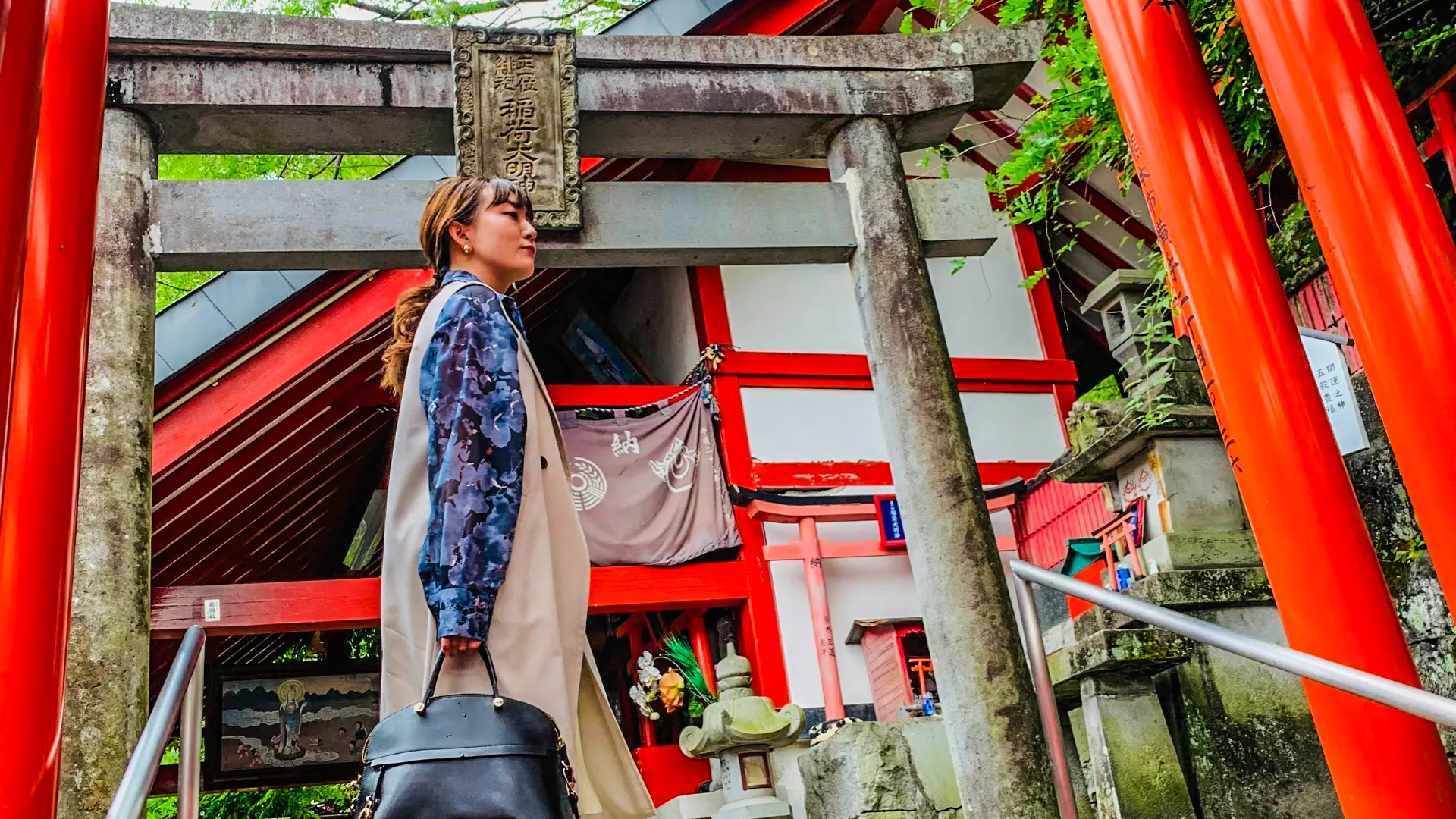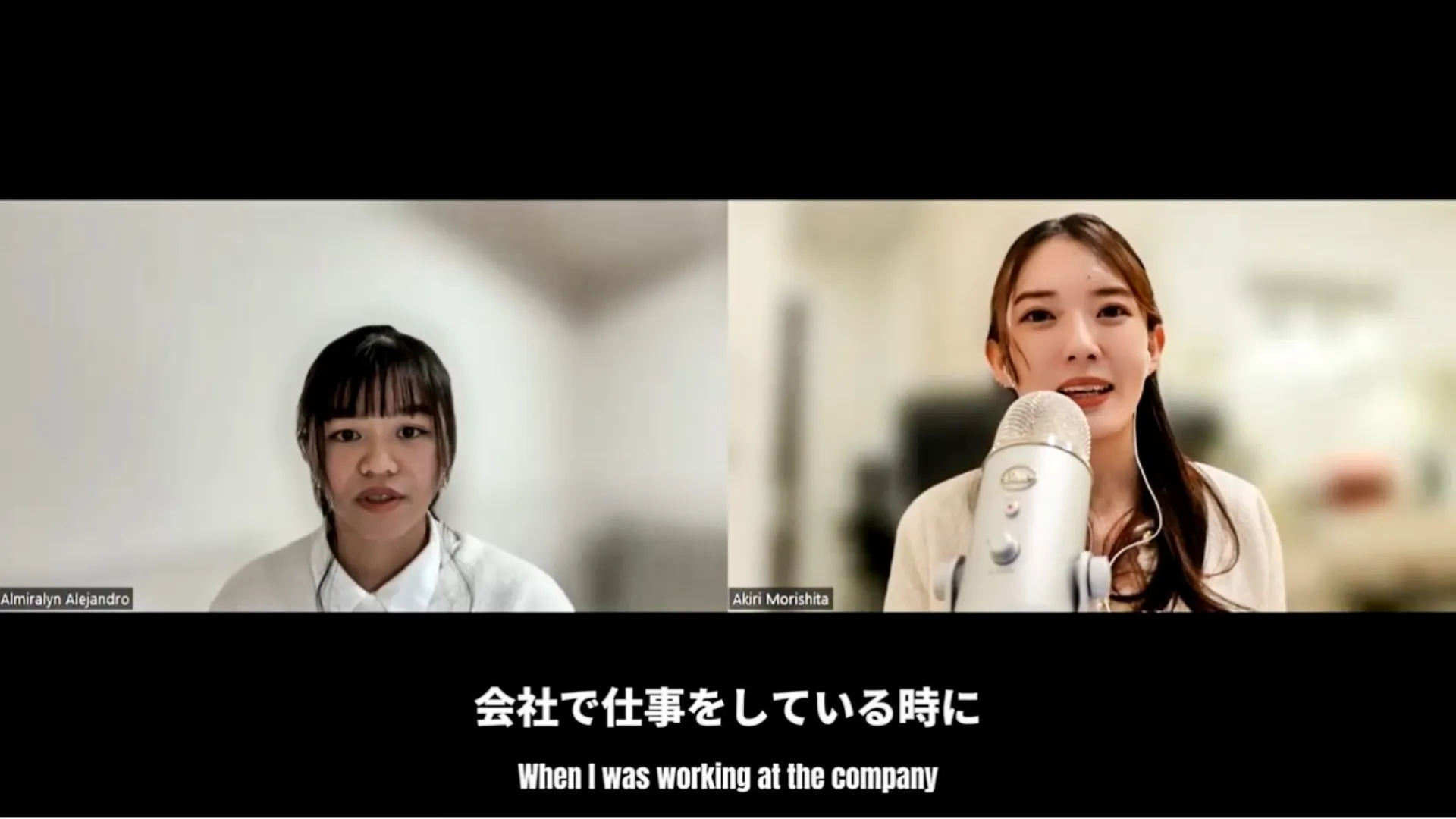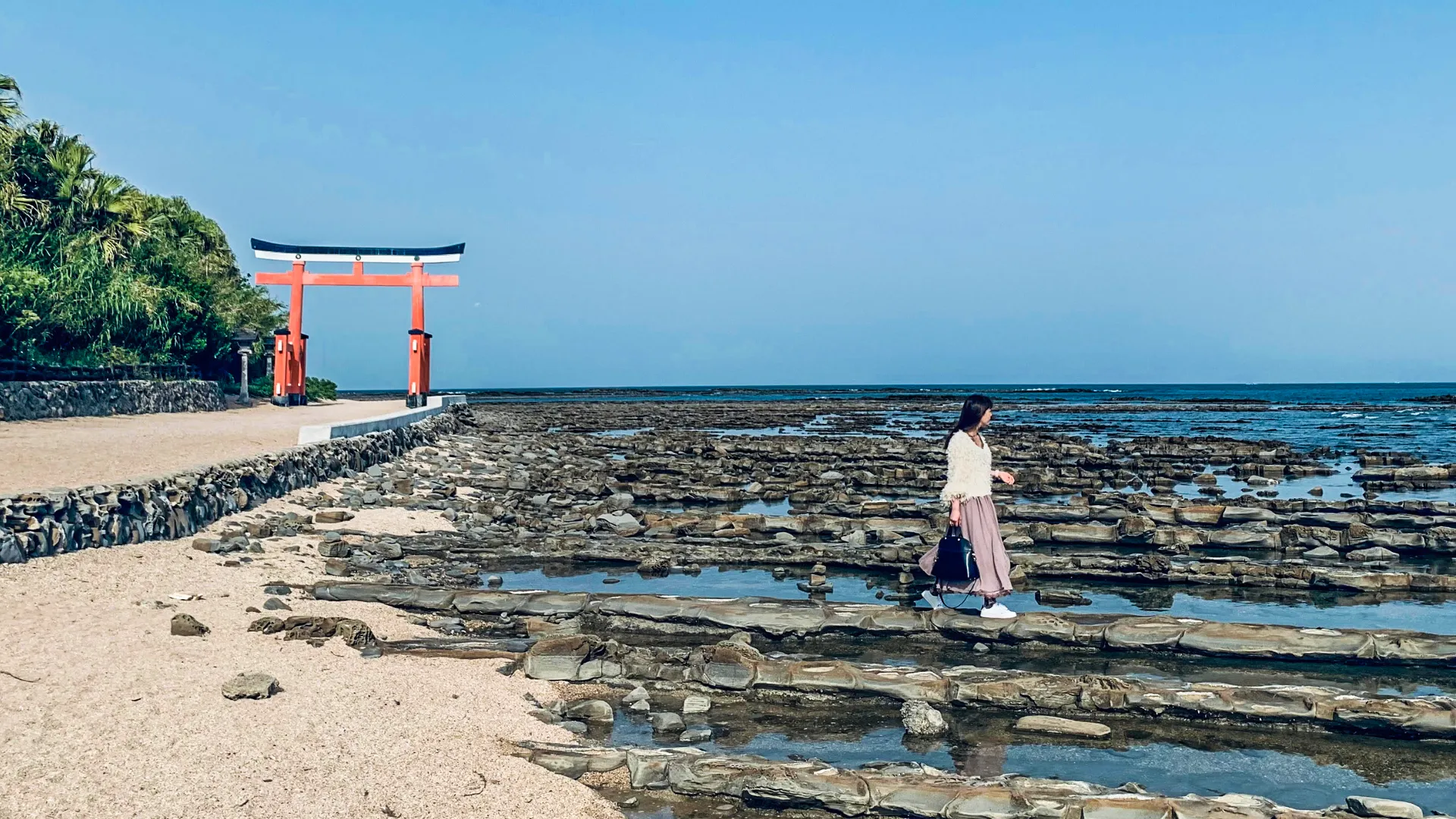Meet Akiri, from Kobe, Japan, an inspiring Japanese language teacher focused on helping international professionals flourish. Through “bloomish_japanese” on Instagram and her comprehensive online platform, she offers in-depth business Japanese lessons. Akiri finds joy in student growth, making learning engaging and accessible by connecting deeply with Japanese culture and language nuances.
Want to learn Japanese in Japan? Ask any questions!
Apply with Travelife Japan to receive personalized guidance, application support, and a smoother enrollment experience.
Interview – Japanese Teacher in Japan


- WHERE ARE YOU FROM?
-
Japan
- PLEASE INTRODUCE YOURSELF!
-
Hello! I’m Akiri, originally from Kobe City, Hyogo Prefecture, Japan. I teach the Japanese language for work to international people living and working in Japan for their career advancement through social media and my platform. I’m studying English, Mandarin Chinese, and Cantonese. I like learning new things(recently brain science), reading, watching movies, and playing with my dogs. I’m interested in visiting historical landmarks firsthand and exploring traditional decorations, ornaments, motifs, and patterns from around the world.
- TELL US ABOUT THE CHARM OF THE CITY YOU ARE CURRENTLY LIVING IN.
-
Kobe City in Japan is known as one of the most beautiful port cities in the country. With its stunning views and unique culture, it captivates visitors from all over.
First and foremost, let’s talk about the iconic Kobe Port. Its grand panorama and vibrant atmosphere leave visitors in awe. Surrounding the port are lovely parks and restaurants where you can stroll around and indulge in delicious local cuisine.
Moreover, Kobe is adjacent to Mount Rokko, one of Japan’s most famous tourist destinations. With its lush greenery, it’s perfect for outdoor activities like trekking and hiking. And if you take the Rokko Cable Car to the mountaintop, you’ll be treated to breathtaking night views, especially renowned for their beauty.
Furthermore, Kobe is a hub of cultural exchange. Its Chinatown, one of the foreign districts, is known for its historic buildings and tasty Chinese cuisine. Plus, with strong Western influences, Kobe boasts numerous Western-style buildings and modern shopping areas.
In summary, Kobe beautifully blends tradition with modernity, making it a city whose charm you won’t soon forget once you’ve experienced it.
- WHERE IS YOUR LOCAL RECOMMENDATION IN THIS CITY?
-
Kobe’s symbol, the Kitano Ijinkan district(神戸北野異人館街) and the former foreign settlement area(旧居留地エリア), are particularly recommended. Additionally, due to Kobe’s history as a port city, the importation of wheat flour began earlier than in other prefectures, leading to the early establishment of a Western confectionery culture. Kobe sweets are highly praised for their deliciousness across all shops.
- WHEN AND WHY DID YOU DECIDE TO TEACH JAPANESE?
-
There are two reasons why I wanted to teach Japanese. The first reason stems from my experience studying abroad in Beijing during my university years. It was enjoyable practicing Chinese with my multinational classmates and engaging in discussions about Chinese culture and customs. The more deeply I delved into learning other languages and cultures, the stronger my interest in Japan became. It was then that I started aspiring to become a Japanese language teacher.
The second reason relates to my struggles with using English in my work when I was employed at a Japanese global corporation. Witnessing my proficient international colleagues struggling with the Japanese language and cultural differences, I felt compelled to help aspiring business professionals excel in Japan by teaching them the language of work.
- HOW ARE YOU TEACHING JAPANESE NOW?
-
On the Instagram account bloomish_japanese, I share useful business Japanese, insights into culture, and tips for effective communication.
I also offer online services through my platform. This includes subscription-based lessons covering various aspects of business Japanese such as conversation, email etiquette, telephone skills, honorific language, business terminology, grammar, business etiquette, and customs. These lessons are delivered through instructional videos, and subscribers can also participate in online workshops free of charge.
Additionally, I conduct group lessons and private sessions tailored to individuals at JLPT N3 level and above, using a curriculum designed to meet the specific needs and challenges of each learner.
My teaching concept revolves around mastering business Japanese communication skills to earn the trust and support of Japanese counterparts. I aim to assist international professionals in building positive relationships with Japanese colleagues while providing support in communication and language to pursue their desired careers and objectives.
- WHAT DO YOU FIND ENJOYABLE ABOUT TEACHING JAPANESE?
-
The interesting part about teaching Japanese is seeing the growth of the students. It’s really fulfilling when they say, “Thanks to you, I can now do ○○!” It gives me a sense of accomplishment in this job.
Moreover, whenever I teach a word, I make sure to research its origin and background. I also create content for learning Japanese, such as studying culture or understanding economics in Japanese. So, delving into secondary knowledge and deepening my understanding is stimulating my curiosity and making it enjoyable.
- WHAT DO YOU FIND DIFFICULT ABOUT TEACHING JAPANESE?
-
When conveying unique Japanese perspectives and definitions of words that exist only in Japan, I am careful in my choice of words to ensure that students grasp the nuances effectively. While there are times when being creative can be challenging, I actually enjoy those aspects as part of the job.
- WHAT DO YOU THINK IS IMPORTANT WHEN LEARNING JAPANESE?
-
When studying foreign languages, including Japanese, I believe it’s crucial to engage all five senses. By that, I mean sight, hearing, taste, smell, and what I like to call “heart sense” – the emotional connection to the language.
There are two main reasons why I recommend utilizing all five senses. Firstly, it’s about “enjoyment” in learning Japanese. For instance, those who enjoy Japanese anime or dramas can practice the language while indulging in these forms of entertainment. Likewise, individuals fond of Japanese cuisine can delve into the language through its food culture. I believe using enjoyable methods to study Japanese is the key to consistency.
Secondly, it’s about “understanding the nuances of Japanese.” Japanese language usage varies based on factors like the situation, the person you’re speaking to, and the speaker’s emotions. This includes distinctions between casual language and honorifics, as well as changes in sentence endings and word choices.
To grasp the subtleties of Japanese, it’s essential to watch Japanese visual content to learn the language, observe conversations among native speakers when possible, and engage in actual dialogue with Japanese individuals.
- WHAT IS YOUR DREAM?
-
My near future aspiration is to consistently provide job placement support, including matching with companies, alongside Japanese language education.
I aim not only to teach Japanese to international business professionals who aspire to work in Japan but also to expand the scope of support to ensure that their acquired skills lead to career advancement and opportunities for employment in reputable companies.
- MESSAGE TO OUR FRIENDS WHO ARE STUDYING JAPANESE.
-
I sincerely appreciate your interest in Japan and the Japanese language.
Japanese is often described as a complex language. Perhaps some of you have been struggling with your Japanese, feeling like you’re not making progress or losing motivation.
It’s okay to feel disheartened along the way, to take breaks from studying Japanese, or to distance yourself from practice. The important thing is knowing how to lift your own spirits, reminding yourself that you’ll get back to studying eventually.
If you ever feel like giving up on learning Japanese or your motivation starts to wane, remember what you want to achieve in Japanese or think about your future vision. Recall the moments when you find joy in Japanese, what makes you think, “Japanese is fun.”
Consistency is key to achieving any result. I’ll keep creating content that makes you feel, “This is fun! Learning Japanese was worth it!” Let’s continue practicing Japanese together with enjoyment.


CONTACT US
For studying Japanese in Japan, please contact us.

